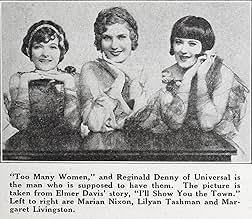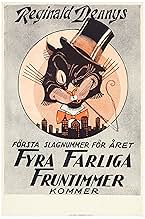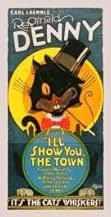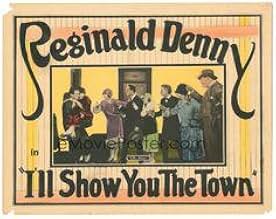A bachelor who cannot bring himself to break a date ends up with three dates at the same restaurant on the same night. He juggles the dates, keeping each from seeing the others, by feigning ... Read allA bachelor who cannot bring himself to break a date ends up with three dates at the same restaurant on the same night. He juggles the dates, keeping each from seeing the others, by feigning reasons to excuse himself from each table.A bachelor who cannot bring himself to break a date ends up with three dates at the same restaurant on the same night. He juggles the dates, keeping each from seeing the others, by feigning reasons to excuse himself from each table.
- Director
- Writers
- Stars
- Awards
- 1 win total
Marian Nixon
- Hazel Deming
- (as Marion Nixon)
Carrie Daumery
- Society Matron
- (uncredited)
Vincent Rose
- Pianist
- (uncredited)
Rolfe Sedan
- Masher
- (uncredited)
Jackie Taylor
- Violinist
- (uncredited)
- …
- Director
- Writers
- All cast & crew
- Production, box office & more at IMDbPro
Featured reviews
Reginald Denny believed that his lesser comedies were directed by Harry Pollard, whose sense of humor was too broad for Denny's style. After having seen "I'll Show You the Town" and a few other Pollard-Denny films, I agree.
The plot, cobbled together from bits of old farces, is an excuse for Denny to get mixed up with four women. In a nightclub scene he has to dine and dance with three of them, and afterward there's a chase scene involving the fourth woman and two outraged husbands. But the build-up to these sequences is far too long and Pollard's direction lacks pace. The cutting is similarly leisurely; if tightened up the film would be much funnier. A good farce requires speed! The gags are predictable, aside a from wonderful bit of dancing in the club. The film is still funny but doesn't gel in the way Denny's best comedies do.
The plot, cobbled together from bits of old farces, is an excuse for Denny to get mixed up with four women. In a nightclub scene he has to dine and dance with three of them, and afterward there's a chase scene involving the fourth woman and two outraged husbands. But the build-up to these sequences is far too long and Pollard's direction lacks pace. The cutting is similarly leisurely; if tightened up the film would be much funnier. A good farce requires speed! The gags are predictable, aside a from wonderful bit of dancing in the club. The film is still funny but doesn't gel in the way Denny's best comedies do.
"You said you would protect me forever."
"But that was seven years ago."
On June 9, 1925, the newly built Stanford Theater in Palo Alto had its grand opening, and for its first movie, put on the world premiere of Reginald Denny's I'll Show You the Town. The theater had won a competition of some sort held by Universal Studios, and Reginald Denny appeared in person. Exactly 100 years later, Denny's granddaughter Kimberly Pucci appeared at the theater and the film was shown again, along with That's My Daddy from a couple of years later. It was a packed house, and between David Packard reminiscing over the history of the theater, Pucci talking about her grandfather, Packard winning an award, and the quality of these old silent films of Denny's, it was a magical night.
An advertisement for the film in the paper in 1925 had this line printed in large letters underneath a picture of Denny: "They ran me ragged and left me flat! - - I tell you there are too many women!" A poster hyped it suggestively as "There's enough laughing dynamite in this rollicking picture to blow your risibilities sky-high. It all revolves around a revolving folding-bed, with the revolvers owned by the husbands of the girls in the folding-bed. It's the wildest, maddest whirl of fun you've ever seen!"
While the film features Denny juggling dinner dates with three different women in the same restaurant with another one back in the bathtub of his apartment, it's more madcap fun than suggestive. You could think of it as essentially a meet-cute that is complicated by the addition of three other women. Those include the wife of a friend he's been asked to entertain, because he's "safe" (Lilyan Tashman), the wealthy widow he's been asked to cozy up to so she'll continue donating to the university (Cissy Fitzgerald), and his old girlfriend who turns up because she's unhappy in her marriage (Margaret Livingstone). All of them get in the way of the woman he really wants, the one his cousin told him about (Marian Nixon). And how can you blame him? She's cute as a button in her cloche hat and packs a mean roundhouse if she feels like she's being harassed (in contrast to her cousin calling her "helpless").
As Denny's character tries to manage all of these women without offending them or putting himself in a compromising position (particularly when the bruiser husband, played by Lionel Braham, turns up looking for his wife), the film builds to a crescendo of furious running around in the halls of his apartment building. Despite not being known for comedy, Denny is quite funny throughout the film, but once the premise had been established, it seemed like it went on a little too long in the same vein.
The film genuinely has its moments though, including Denny and Nixon each imagining what the other must be like based on what they've been told (images which are way off), Denny going through all sorts of contortions when an ice cube goes down his back on the dance floor, him in his panic thinking another man is going back and forth and blocking his way (it's a giant mirror), and him throwing his old girlfriend into his Murphy bed and folding her up to try to hide her. It ends ironically with the conclusion to the book his character is attempting to write, one that posits the question "did man descend from the apes?" which, after he puts a stop to the wild shenanigans by getting into "cave man" mode and takes charge, is in the affirmative.
On June 9, 1925, the newly built Stanford Theater in Palo Alto had its grand opening, and for its first movie, put on the world premiere of Reginald Denny's I'll Show You the Town. The theater had won a competition of some sort held by Universal Studios, and Reginald Denny appeared in person. Exactly 100 years later, Denny's granddaughter Kimberly Pucci appeared at the theater and the film was shown again, along with That's My Daddy from a couple of years later. It was a packed house, and between David Packard reminiscing over the history of the theater, Pucci talking about her grandfather, Packard winning an award, and the quality of these old silent films of Denny's, it was a magical night.
An advertisement for the film in the paper in 1925 had this line printed in large letters underneath a picture of Denny: "They ran me ragged and left me flat! - - I tell you there are too many women!" A poster hyped it suggestively as "There's enough laughing dynamite in this rollicking picture to blow your risibilities sky-high. It all revolves around a revolving folding-bed, with the revolvers owned by the husbands of the girls in the folding-bed. It's the wildest, maddest whirl of fun you've ever seen!"
While the film features Denny juggling dinner dates with three different women in the same restaurant with another one back in the bathtub of his apartment, it's more madcap fun than suggestive. You could think of it as essentially a meet-cute that is complicated by the addition of three other women. Those include the wife of a friend he's been asked to entertain, because he's "safe" (Lilyan Tashman), the wealthy widow he's been asked to cozy up to so she'll continue donating to the university (Cissy Fitzgerald), and his old girlfriend who turns up because she's unhappy in her marriage (Margaret Livingstone). All of them get in the way of the woman he really wants, the one his cousin told him about (Marian Nixon). And how can you blame him? She's cute as a button in her cloche hat and packs a mean roundhouse if she feels like she's being harassed (in contrast to her cousin calling her "helpless").
As Denny's character tries to manage all of these women without offending them or putting himself in a compromising position (particularly when the bruiser husband, played by Lionel Braham, turns up looking for his wife), the film builds to a crescendo of furious running around in the halls of his apartment building. Despite not being known for comedy, Denny is quite funny throughout the film, but once the premise had been established, it seemed like it went on a little too long in the same vein.
The film genuinely has its moments though, including Denny and Nixon each imagining what the other must be like based on what they've been told (images which are way off), Denny going through all sorts of contortions when an ice cube goes down his back on the dance floor, him in his panic thinking another man is going back and forth and blocking his way (it's a giant mirror), and him throwing his old girlfriend into his Murphy bed and folding her up to try to hide her. It ends ironically with the conclusion to the book his character is attempting to write, one that posits the question "did man descend from the apes?" which, after he puts a stop to the wild shenanigans by getting into "cave man" mode and takes charge, is in the affirmative.
10dsikula
What a pleasant surprise! One of the funniest pictures I've ever seen. Charming and hilarious throughout. Who knew that Reginald Denny, who was so good at playing pompous stiffs in his later pictures, was so funny. An absolutely marvelous picture with no visible flaws. Nothing but belly-laughs from beginning to end.
I had the pleasure of watching this film with live organ music at the National Gallery of Art in Washington DC on April 26, 2008. It was absolutely hilarious, just a great slapstick comedy in which an otherwise dull and ordinary professor suddenly finds himself escorting three different women to the same ritzy dance/dining hall. The film ends with a classic chase sequence in which everyone in the plot shows up angry and wants a piece of the professor! A young Reginald Denny plays the hapless professor and resembles a young Maurice Chevalier, who actually would have done pretty well in the part, too! If this delightful film ever makes it to DVD, be sure to check it out. It's at least as funny as Chaplin's The Circus or any number of Keaton features.
Did you know
- TriviaThis was the first film to play at the Stanford Theater in Palo Alto, California. The Stanford was refurbished in the 1980s by David Packard and (as of 2023) continues to show films made before 1960 - often to packed houses.
- GoofsThe autograph on Alec's photograph of Lucille misspells her name as "Lucile".
Details
- Runtime1 hour 20 minutes
- Color
- Sound mix
- Aspect ratio
- 1.33 : 1
Contribute to this page
Suggest an edit or add missing content
































